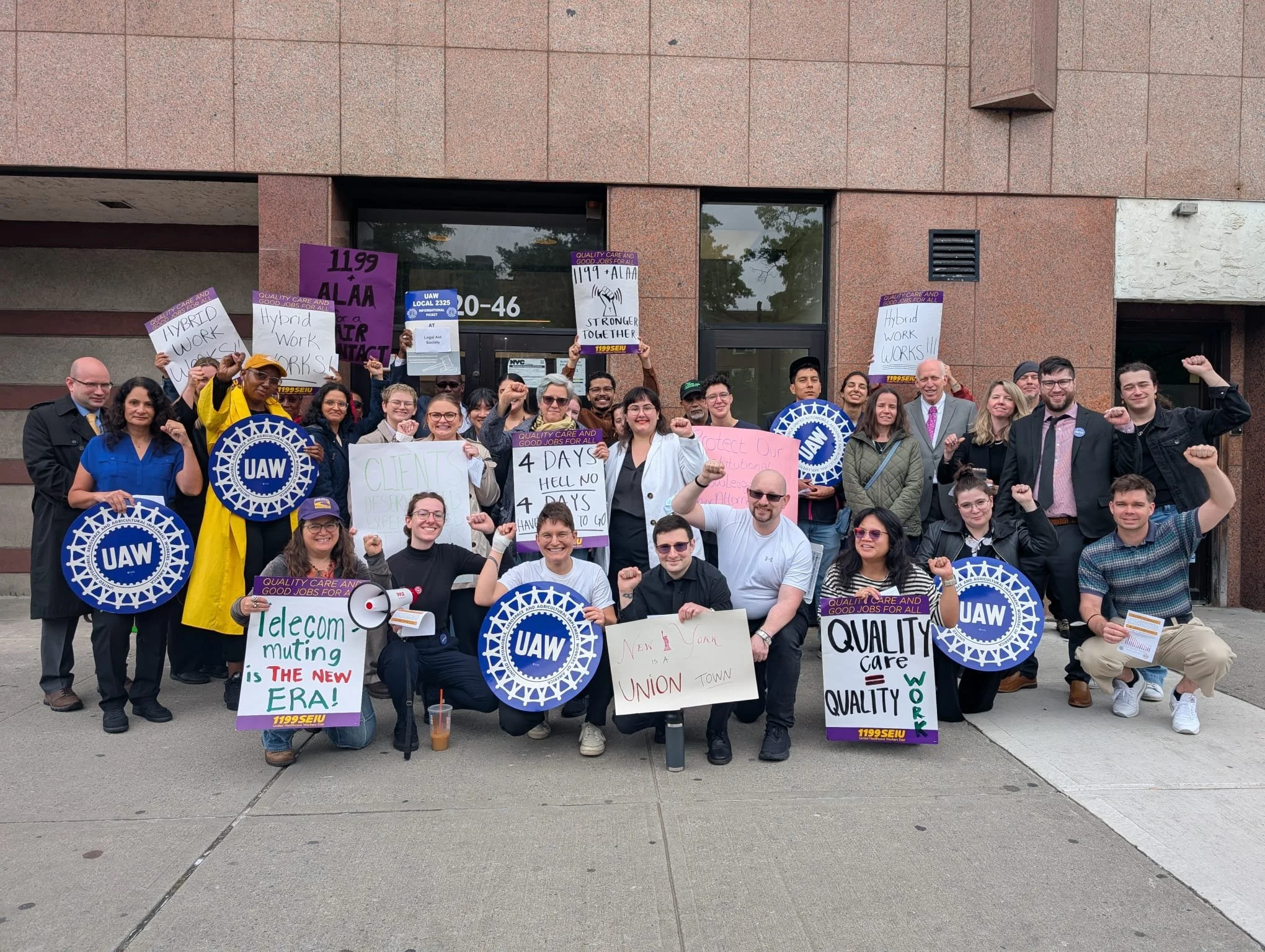Looming Strike: The Battle for Fairness in New York City's Public Defense System
To explore further, check out our recent podcast episode "NYC Public Defenders & Sectoral Bargaining: Funding Crisis and the Fight for Fair Contracts", where attorneys discuss these critical issues firsthand.
On May 29, 2025, New York City's public defenders gathered in unprecedented solidarity, organizing pickets and rallies that sent a clear message: they need fair wages, sustainable working conditions, and proper funding—and they're prepared to strike if their demands aren't met by June 30. This potential mass strike isn't simply about paychecks; it’s a profound statement about justice, equality, and how New York City values those who uphold the constitutional rights of its most vulnerable residents.
The Core of the Crisis
At the heart of the conflict is the ongoing issue of chronic underfunding and low pay for New York City's public defenders. The attorneys—primarily represented by unions like the Association of Legal Aid Attorneys (ALAA), affiliated with UAW Local 2325—have spent years facing overwhelming caseloads, high turnover, and unsustainable working conditions. Despite serving as a critical component of the city's justice system, public defenders frequently earn far less than their counterparts in other sectors, including city prosecutors, federal defenders, and even attorneys in comparable major cities across the country.
This disparity in compensation has created a crisis of retention. Skilled, passionate lawyers regularly leave public defense roles not because they lack dedication, but because economic realities force them to choose between their commitment to justice and their ability to afford the skyrocketing costs of living in New York City.
The Power of Sectoral Bargaining
Recognizing that isolated bargaining efforts by individual legal service providers have failed to achieve significant improvements, public defenders are now pushing for sectoral bargaining. This groundbreaking strategy seeks to unify all public defense providers under one bargaining unit, negotiating collectively with the city to secure fair and equitable contracts across the board.
Sectoral bargaining emerged from lessons learned in the 1994 public defenders' strike, which brought temporary improvements but didn't fundamentally address structural inequities. By uniting, attorneys aim to leverage their collective power to demand systemic reforms, including competitive salaries, manageable caseloads, better healthcare benefits, gender-affirming care coverage, telecommuting flexibility, pension improvements, and stronger commitments from management and city government alike.
The City's Role and Responsibility
While negotiations happen between the unions and their direct management, the ultimate power—and responsibility—rests with New York City itself. Funding for public defenders flows primarily from city contracts. Without a substantial increase in this funding, management at Legal Aid and other organizations have limited capacity to meet attorneys' demands. The city government, led by Mayor Eric Adams and key members of the New York City Council, is under immense pressure to prioritize funding these essential legal services adequately.
The recent picket on May 29 was a loud and clear call to elected officials. At rallies in front of criminal courthouses across all five boroughs, public defenders and allies, including prominent city council members like Tiffany Cabán and Sandy Nurse, underscored that justice should not be dictated by budget cuts and austerity measures. They urged city leadership to match their stated values with tangible action.
Impact of a Potential Strike
If a fair contract isn't reached by the June 30 deadline, the potential strike would be unprecedented in scale and scope. Courts would see severe disruptions, with thousands of cases—including arraignments, bail hearings, custody battles, evictions, and immigration proceedings—coming to a grinding halt. The ripple effect would be felt citywide, particularly among already vulnerable populations who depend heavily on public defenders.
A strike would also shed a stark light on the systemic inequities embedded within New York's justice system. Without adequate legal representation, individuals accused of crimes could face wrongful convictions, unfair plea deals, and prolonged detention—outcomes that disproportionately impact low-income communities of color.
Ethical Dilemmas and Difficult Choices
Public defenders often face painful ethical dilemmas, balancing their desire to provide rigorous representation against the crushing workload and financial strain. Attorneys who joined this field driven by a mission to serve marginalized communities now grapple with burnout and a demoralizing choice between their principles and their financial stability.
Moreover, management within these organizations is not the adversary—many leaders within legal aid groups publicly support better conditions and funding, but they remain constrained by city contracts. Management's role in these negotiations is thus twofold: they must advocate strongly to city officials for increased resources, while simultaneously addressing internal pressures and union demands.
Political Context and Community Solidarity
Public defenders have gained strong political allies. Council members and state legislators have publicly voiced support, recognizing the critical role these attorneys play in maintaining the constitutional balance within the justice system. However, the true test will be whether these elected officials can translate their vocal support into actionable budgetary commitments.
Public sentiment, shaped by recent advocacy efforts, is increasingly sympathetic to the defenders' plight. The May 29 pickets demonstrated robust community solidarity, with everyday New Yorkers recognizing that adequately funded public defense is integral to a fair and functioning justice system. Community advocacy, alongside organized labor and grassroots movements, could be a determining factor in influencing the city's funding decisions.
The Road Ahead: Justice at Stake
As the June 30 contract deadline looms, the stakes couldn't be higher. If public defenders strike, the repercussions will be profound, forcing the city to confront the true costs of neglecting its public defense infrastructure. The ongoing negotiations symbolize a broader fight for equity—not only for attorneys but for the countless New Yorkers whose lives hang in the balance.
Public defenders are clear: they aren’t asking for luxury—they are demanding basic dignity, fair compensation, manageable workloads, and respect. Without a comprehensive and fair contract agreement, New York City's public defense crisis threatens to evolve into an even deeper civic crisis.


